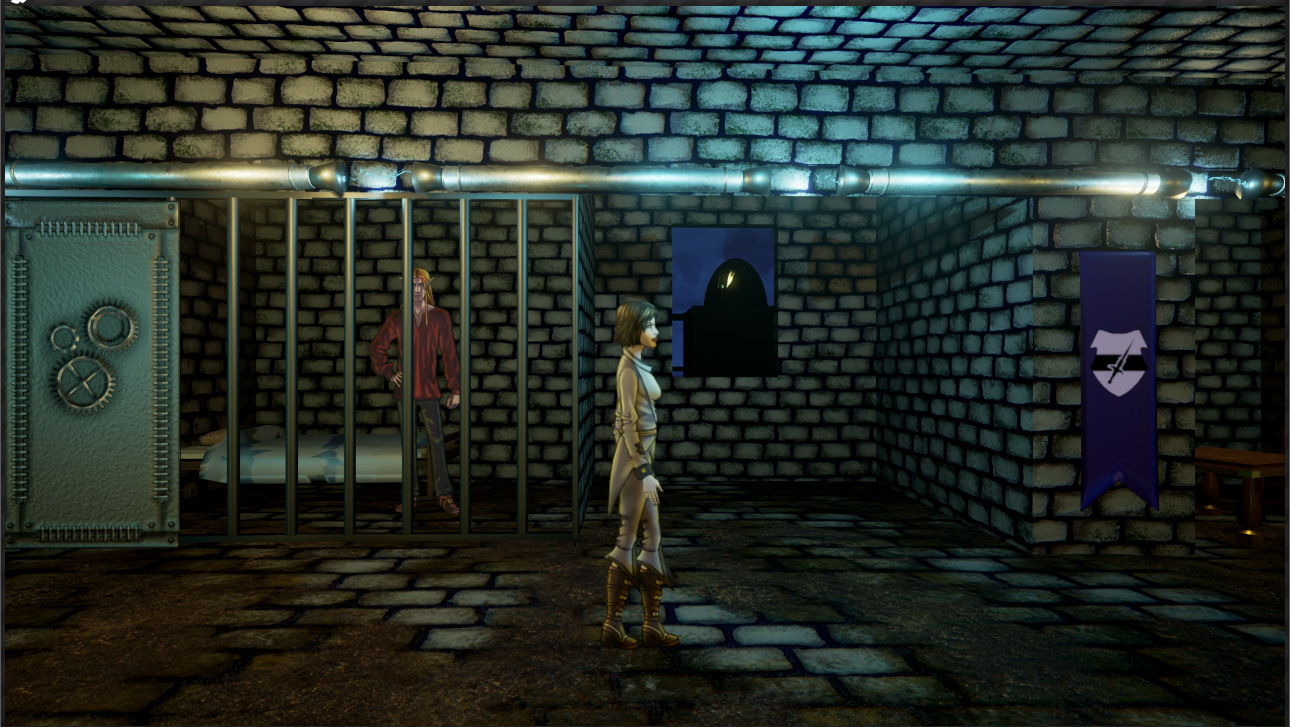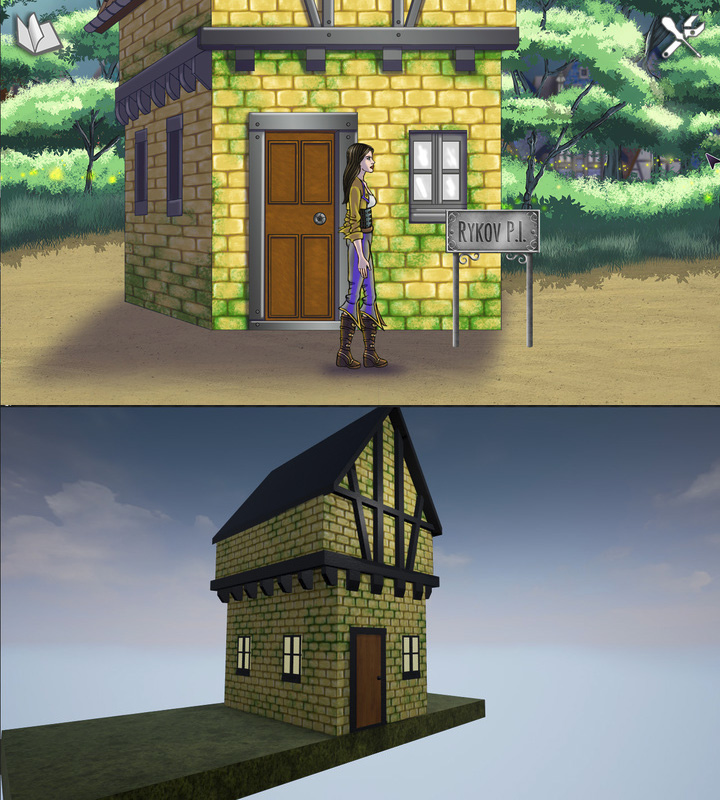Trending
Opinion: How will Project 2025 impact game developers?
The Heritage Foundation's manifesto for the possible next administration could do great harm to many, including large portions of the game development community.
Woodsy Studio is switching from Gamemaker Studio to Unreal Engine 4, a decision brought about by a desire to move into 3d backgrounds, technical limitations, and a dash of contrarianism.

We’ve been quiet over at Woodsy Studio for the last month or so, but with good reason: we’ve been busy! Shortly after releasing Echoes of the Fey: The Fox’s Trail on Steam, we decided to switch our development platform from Gamemaker Studio to Unreal Engine 4. This is no simple task. For Gamemaker, we had a very helpful base to build off of with ThinkBoxly’s EdgeVN system. With UE4, we don’t have such luck. There is a module for sale, but it seems unequipped to handle large multi-scene VNs, so we are building from the ground up using the UE4 blueprint visual scripting. On top of that, we’re converting to 3d backgrounds, which means re-making a lot of our general world assets to 3d models.
Most people are totally confused when we tell them we’ve decided to switch to UE4, and that’s without the troubles mentioned above. UE is best known for big-budget 3d games. It isn’t known for indie development or user friendliness. Unreal is total overkill for a visual novel, especially when the most GPU-intensive thing we’ve pushed out in previous games is a high resolution character sprite. So, why are we going to all this trouble to switch to an engine that is (on its face) worse for indie 2d development than our previous platforms?

(Our first public screenshot for the new UE4-powered Echoes of the Fey: Episode Zero)
To start, I need to go over the problems we had with Gamemaker. I don’t want to make this post a big list of complaints about GM–which I think is fantastic for certain kinds of projects–but addressing a couple of these is unavoidable. First off, audio files. The way GM handles audio files was frustrating from start to finish. Importing them was clunky. We couldn’t make batch changes to groups of sounds. And a couple times, references to entire groups of sounds just disappeared.
These would be annoyances for any game, but because of the nature of our (partially) voiced visual novels, we had over 2,500 sound files in our game. Any task related to the sound was a huge ordeal for us and, in the end I think the sheer number of sounds ended up creating our other problem with GM: porting.
Also, out of the (metaphorical) box, UE4 is fantastic at making your game look good. I don’t entirely know how the guts of either engine work, but it seems very easy to use the UE4 cameras and lights (as they are implemented without plugins) to make our art pop compared to what I’ve seen of Unity. And the material system lets (relatively) inexperienced programmers do some amazing things with shaders in a visual scripting interface.
Finally, I’ve always been a bit of a contrarian and everyone using Unity because the common knowledge is that Unity is more user friendly just makes me want to go down the road less traveled. And we’ve discovered that this common knowledge might be wrong.
It has been just over a month and a half since starting the conversion and we already have a full dialog system set up (developed by us from the ground up), with working choice menus and overworld exploration like in The Fox’s Trail. We’ve built out our first environment and imported the first handful of scenes for Episode Zero. Converting to 3d environments has allowed me–a person who couldn’t draw if my life depended on it–to take over a portion of the art process, building 3d models based on our original drawings. This required learning Blender along with Unreal Engine 4, but for a long time the art burden has fallen entirely on one member of the team and I’m more than happy to finally help out.

(An early example of how we're re-making assets from Episode 1 in 3d)
At first, I likened trying to make a visual novel in UE4 to using a rifle to kill a fly. Yes, it can get the job done but it will be harder and a ton of overkill. Now, I’d use a different tortured metaphor: it’s like putting together Ikea furniture with powertools. It’s still overkill, but the power tools have a lot more uses than just putting together Ikea Furniture.
So, when is Episode Zero coming out? Right now, we’re tentatively saying “TBD: Winter”. And yes, we mean this upcoming winter. I don’t think we can commit to anything more than that, but since we have so much of the framework already done and Episode Zero is a smaller project, we hope that you’ll be able to enjoy the first visual novel developed in UE4* fairly soon.
*I don’t know if we’re really going to be the first UE4 VN. I couldn’t find any. Correct me if I’m wrong!
Read more about:
BlogsYou May Also Like